
NobelPrize
17:51, 03-Oct-2018
Frances H. Arnold, George P. Smith and Sir Gregory P. Winter jointly awarded 2018 Nobel Prize in Chemistry
Updated
17:30, 06-Oct-2018
By Hu Yiwei, Jiang Jiao, Guo Meiping
00:49
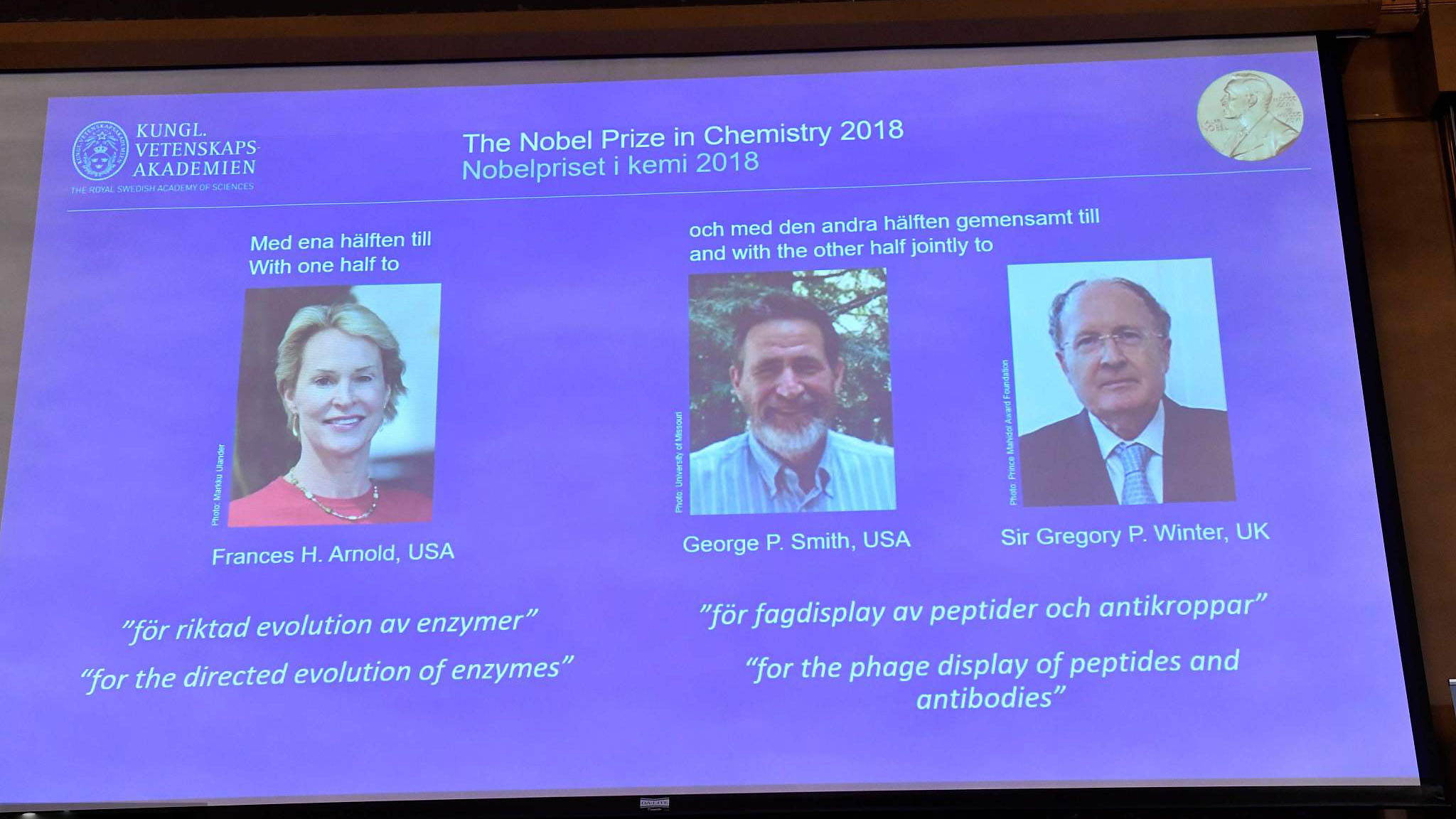
The 2018 Nobel Prize in Chemistry has been awarded to Frances H. Arnold and George P. Smith of the US, and Sir Gregory P. Winter of the UK, the Royal Swedish Academy of Sciences announced on Wednesday.
"This year's Chemistry Laureates have taken control of evolution and used the same principles – genetic change and selection – to develop proteins that solve humankind's chemical problems," the award-giving body said.
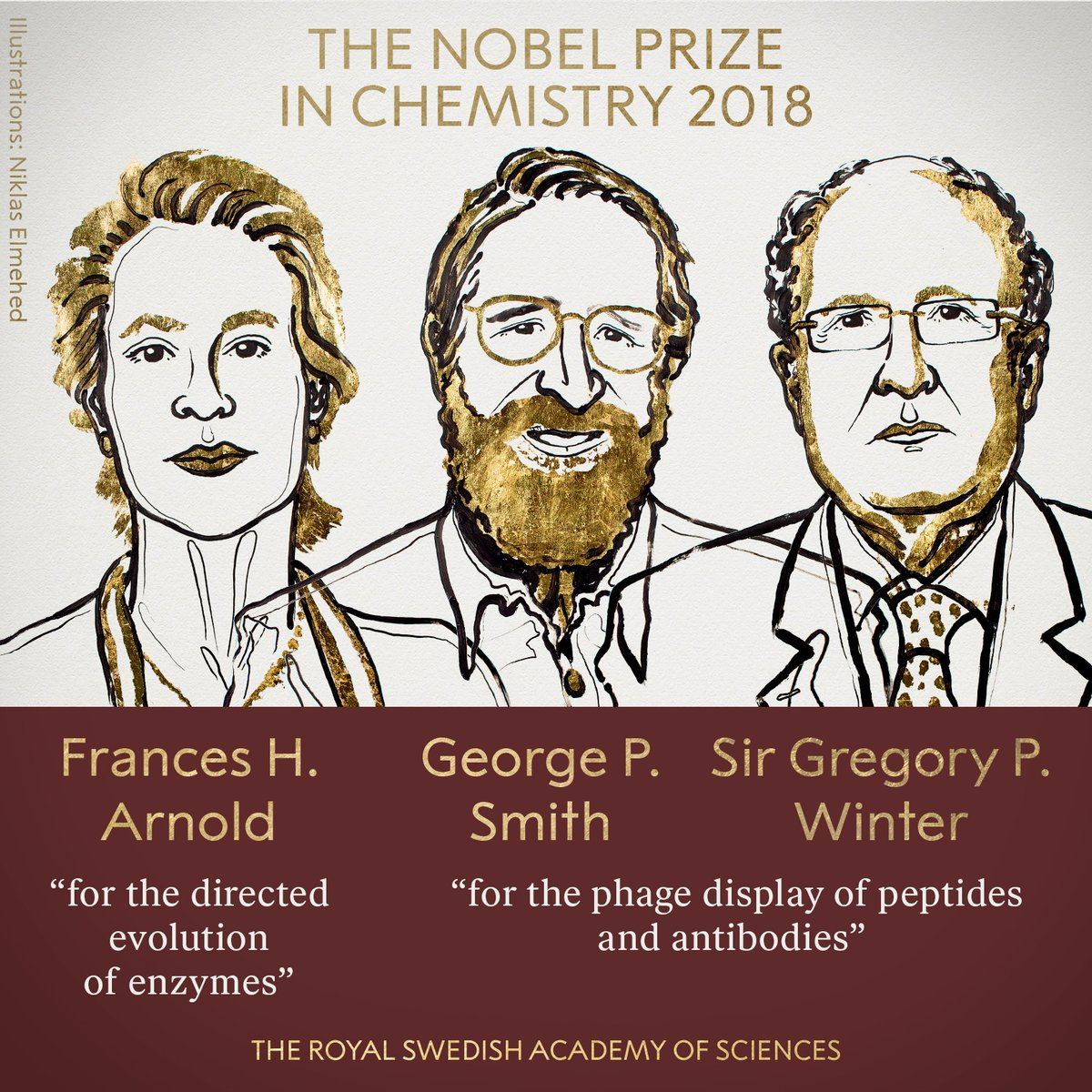
Laureates of the 2018 Nobel Prize in Chemistry. /Twitter Screenshot
Laureates of the 2018 Nobel Prize in Chemistry. /Twitter Screenshot
Watch the replay of CGTN's live stream of the Academy's announcement.
In simple words, the three Nobel Chemistry laureates this year have created "safer, greener" ways to provide solutions to humankind with "better efficiency and fewer side effects."
'Directed evolution'
The similarity between the three laureates is that they all managed to select some important chemical microbes for directed evolution.
Frances H. Arnold at Caltech in the US, the receiver of one half of this year's Nobel Chemistry Prize, conducted the first directed evolution of enzymes – proteins that catalyze chemical reactions – in 1993, and has since then refined the methods, which are now routinely used to develop new catalysts.
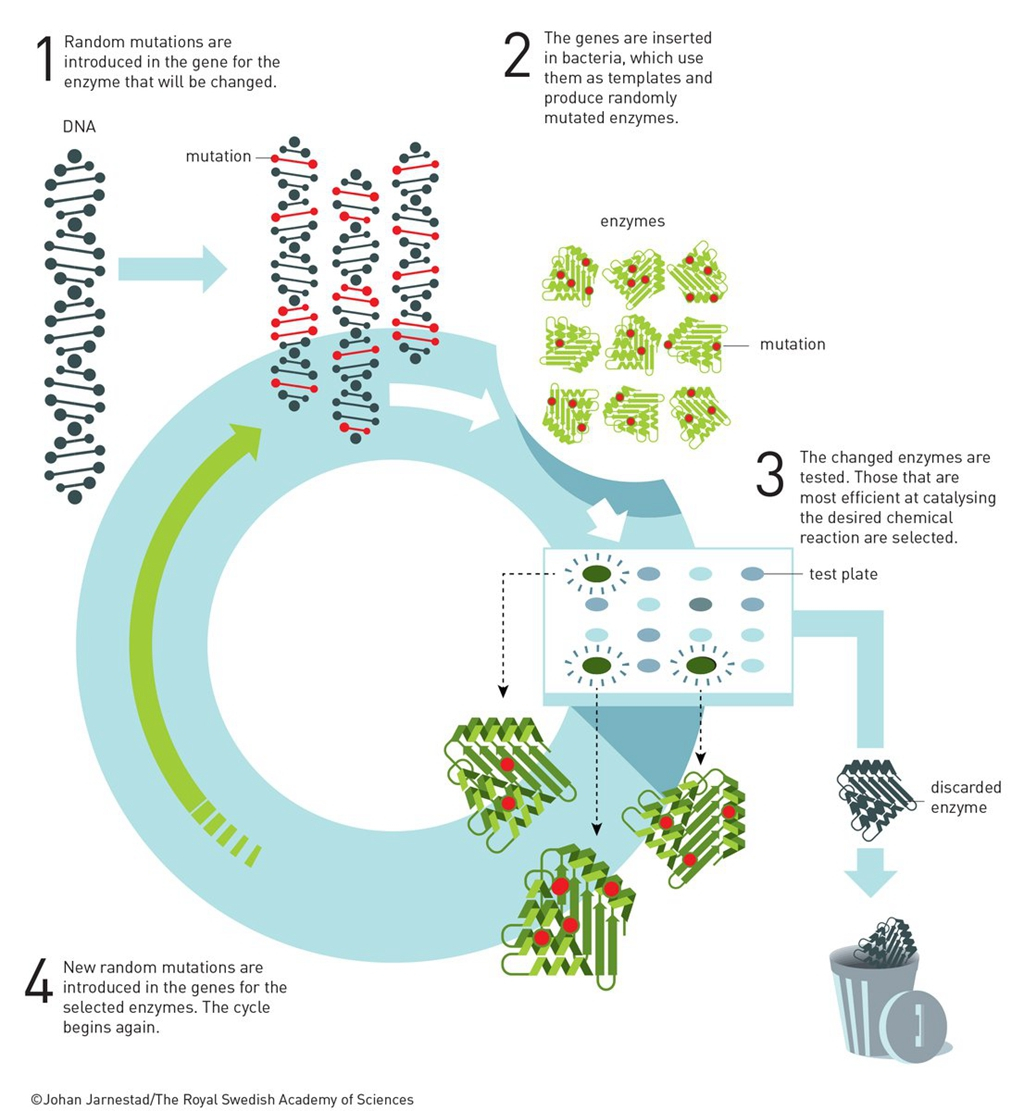
A visual illustration of Arnold's finding. /Twitter Screenshot
A visual illustration of Arnold's finding. /Twitter Screenshot
Her findings are not only useful to create "more environmentally friendly manufacturing" of pharmaceuticals, but also can be applied to the production of "renewable fuels for a greener transport sector."
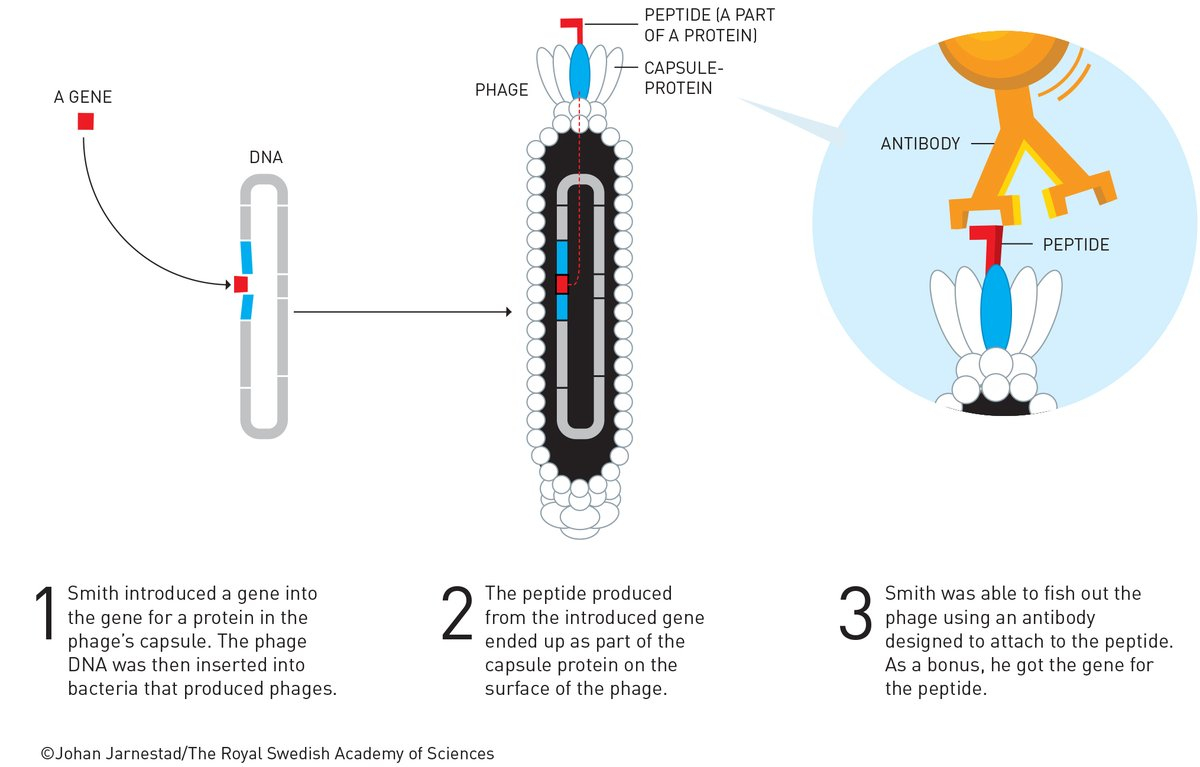
A visual illustration of Smith's work. /Twitter Screenshot
A visual illustration of Smith's work. /Twitter Screenshot
As for the other half, it was shared by George P. Smith at the University of Missouri in the US, and Sir Gregory P. Winter, a British scientist from the Medical Research Council Laboratory of Molecular Biology.
In 1985, George Smith developed a phage display, where a bacteriophage – a virus that infects bacteria – can be used to evolve new proteins. Gregory Winter used that display to direct evolution of antibodies and to develop new drugs.
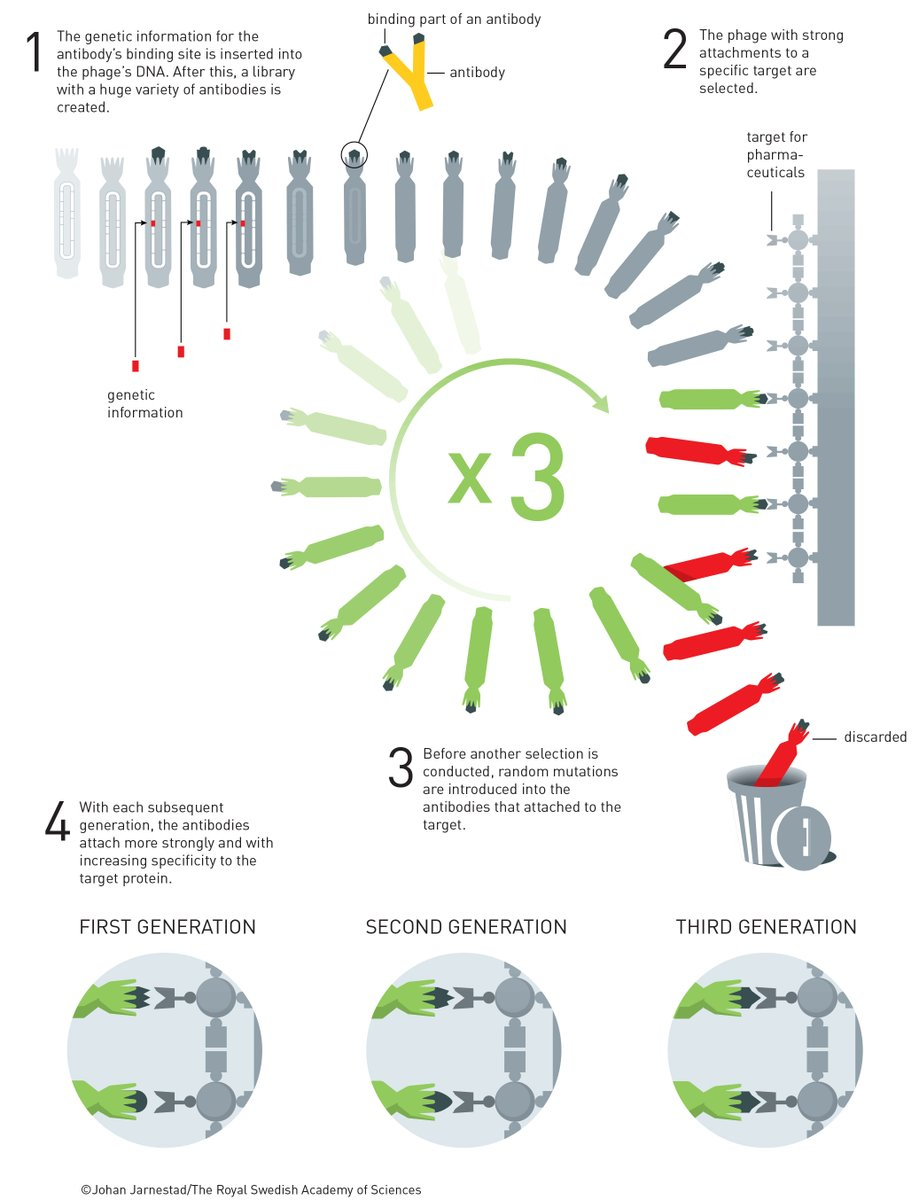
A visual illustration of Winter's work. /Twitter Screenshot
A visual illustration of Winter's work. /Twitter Screenshot
Today, phage display has produced antibodies that can "neutralize toxins, counteract autoimmune diseases and cure metastatic cancer."
During the Q&A session, when asked about a "tendency" toward medicine-related science breakthrough, the award-giving body said that was not out of any intention, noting the founder, Alfred Nobel's wish to award "brilliant science with consequences."
Because of some line problems, the phone interview with Professor Arnold was not clear enough to get useful information. We'll need to wait until the prize giving ceremony this December to know further detail.
Chemist Alfred Nobel
Through 1901 to 2017, the Nobel Prize in Chemistry was awarded 109 times to 177 laureates from around the world for their great achievements.
However, many may forget the fact that the founder of the Nobel Prizes, Alfred Nobel, was also a chemist.
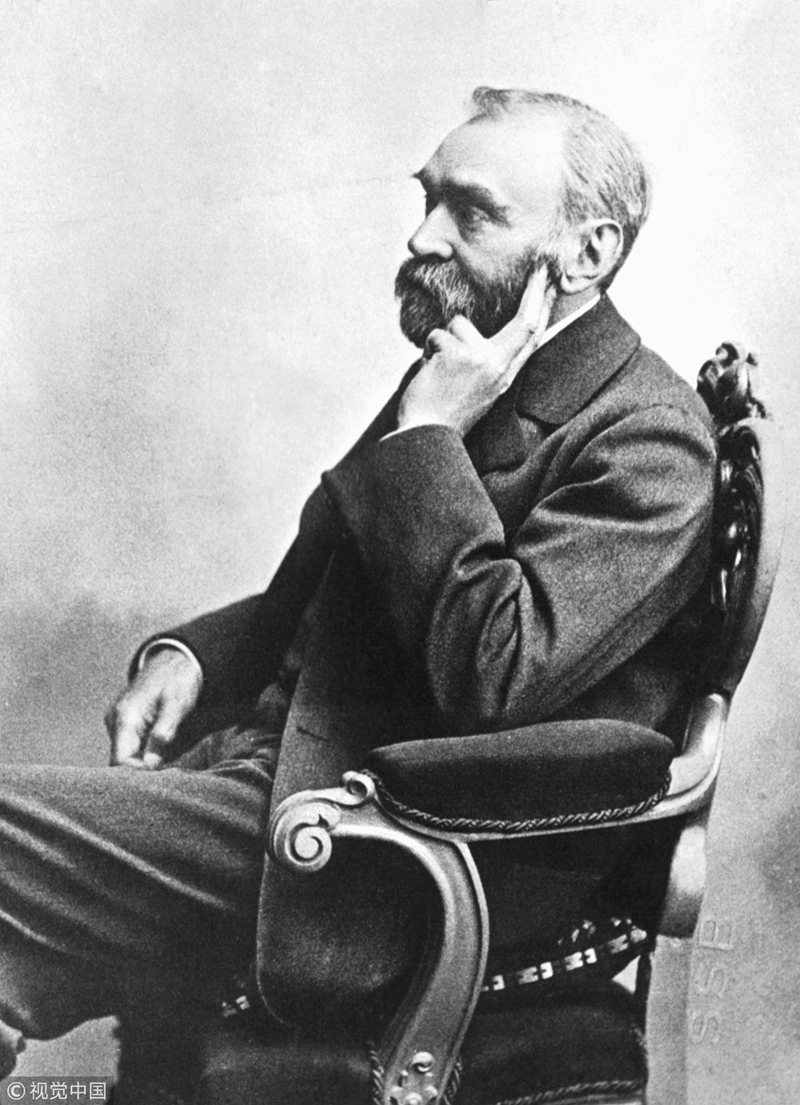
Alfred Nobel (1833-1896) the Swedish chemist and engineer who invented dynamite and bequeathed his fortune to institute the Nobel Prizes. /VCG Photo
Alfred Nobel (1833-1896) the Swedish chemist and engineer who invented dynamite and bequeathed his fortune to institute the Nobel Prizes. /VCG Photo
With his multiple identities, including businessman, engineer, and philanthropist, Nobel scored tremendous achievements in chemistry. In 1867, he patented his invention of dynamite, an explosive made of nitroglycerin, sorbents and stabilizers.
Among the 355 different patents that Nobel held, dynamite was considered the most famous.
On 27 November, 1895, the Swedish chemist signed his will and set aside 31 million Swedish kronor of his assets to establish the five Nobel Prizes.
In the will, Nobel put the Nobel Prize in Chemistry in the second place after the Nobel Prize in Physics.
Another fun fact about the founder of the Nobel Prizes is that the synthetic element nobelium was named after him.
The Nobel Prize in Chemistry is the third Nobel Prize awarded this year, after Arthur Ashkin, Gerard Mourou and Donna Strickland received the Nobel Prize for Physics on Tuesday, and James Allison and Tasuku Honjo won the Nobel Prize for Physiology or Medicine on Monday.

SITEMAP
Copyright © 2018 CGTN. Beijing ICP prepared NO.16065310-3
Copyright © 2018 CGTN. Beijing ICP prepared NO.16065310-3